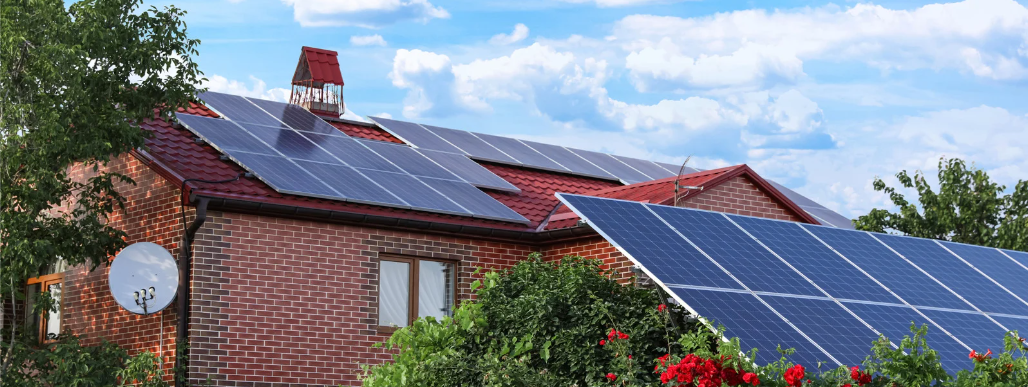Let's talk about Heat Pump Week
So, what is it?
Championing the cause of Heat Pumps is what Heat Pump Week is all about. It’s an opportunity to bring the heating sector together and engage government in highlighting the necessity for heat pumps on our journey to net zero. It brings together a wide range of stakeholders from across the energy sector and will raise awareness, improve understanding and guide consumers and businesses towards embracing heat pumps as a sustainable solution.
Heat pumps are essential for reducing home heating emissions, which account for around 18% of all greenhouse gas emissions in the UK. However, despite their numerous benefits for people and planet, many have yet to fully understand or adopt these efficient heating technologies.
This week we are going to be taking a closer look at some of the myths around heat pumps and share not only the facts to dispel those myths, but also some great insight from our industry experts to showcase just how great heat pumps are for you, your finances and the environment. Have a look at our Facebook and Instagram pages to find out more.
Understanding Heat Pumps
What is a Heat Pump?
Heat pumps are an energy-efficient alternative to fossil fueled forms of heating our homes. It’s a heat source, just like a traditional boiler but uses electricity to produce heat.
A heat pump uses electricity to move heat from a cooler place to a warmer place, similar to how a refrigerator works. It works like this:
- Capture heat: The heat pump extracts heat from the air, ground, or water.
- Evaporate refrigerant: The heat causes the refrigerant liquid to evaporate and turn into a vapour.
- Increase pressure: The gas is moved into a compressor, which increases the pressure which in turn raises the temperature.
- Transfer heat: The heated vapour passes through a heat exchanger, transferring heat to the water in your radiators or hot water cylinder.
- Repeat: The cycle and repeats, keeping your home cosy and warm.
The amount of heat a heat pump produces for each unit of electricity it uses is called the Coefficient of Performance (CoP). The seasonal coefficient of performance (SPF) shows how efficient a heat pump is over the course of a year.
The different types of Heat Pumps
- Air-to-air: The Air Source Heat Pump distributes heat through air units but doesn’t provide hot water this is an air conditioning unit.
- Ground source: These heat pumps use the earth as a heat source. They can be laid out horizontally or vertically, but horizontal arrays are generally preferred because they’re less expensive to install.
- Water source: This type of system uses open water sources like rivers, lakes, or streams as a heat source.
- Hybrid: These combine a heat pump with a fossil fuel boiler.
Ground source and water source heat pumps are more expensive to install than air source heat pumps, but they can perform more consistently in colder weather.
Benefits of Heat Pumps
- Reduce your carbon footprint with a more sustainable solution
- Heat pumps use cleaner electricity and are more sustainable than oil or gas heating contributing to a reduced carbon footprint and if you use oil or LPG, you can save space and time by no longer needing to have fuel delivered.
- Heat pumps also have a longer lifespan and can last 20–25 years, while gas boilers typically last 10–15 years.
- Heat pumps are an important part of the future of heating and can give you access to the latest technology.
- Compatibility with solar panels – you can pair a heat pump with solar panels and/or batteries to further reduce your heating system’s carbon emissions and running costs.
- Heat pumps are suitable for almost all types of homes.
- Installation cost reduction thanks to Government grants.
A gas or oil boiler brand new can at best only be 95% efficient, an air source heat pump varies in efficiency somewhere between 250% to 500% so significantly more efficient way to heat a property than traditional methods. Air Source Heat pumps have been very much commonplace in Northern European countries for decades now and relatively recently becoming more mainstream in the UK.
Heat Pump Week Initiatives
Government Grants, Financial Support and Upgrade Schemes
Heat Pump Week is all about showcasing the benefits of Heat Pumps across the sector including the range of financial support that is available.
In the UK alone there has been a 19% increase year on year** in the installation of heat pumps and there are now over 200,000 certified heat pump installations across the country. The uptake is driven largely in part by consumer drive for more sustainable and affordable heating solutions as well as the increased uptake in the UK Government’s Boiler Upgrade Scheme which, if you qualify, contributes £7,500 towards the cost of a new heat pump. The government has also announced 0% VAT on the installation of heat pumps for five years. On top of this there are also other energy upgrade schemes such as ECO4 which gives government grants to people to help make their homes more energy efficient including installing solar panels. We’ve produced a handy guide to the costs of installing heat pumps for you to read here on the website.

Partnering with Industry Leaders
Which heating system is better?
Heat Pumps vs. Traditional Boilers
Heat pumps and boilers are both ways to heat your home, but they have different ways of generating heat, costs, and installation processes:
- Heat generation – Boilers produce high heat in short bursts, while heat pumps produce lower heat more steadily keeping your home a consistent temperature.
- Efficiency – Heat pumps are generally more efficient than boilers, using about a quarter of the energy of a gas boiler. Heat pumps can be up to 250-500% efficient, meaning they produce 2.5-5 units of heat for every unit of electricity used.
- Cost – Cost Gas boilers are cheaper to install than heat pumps, but heat pumps are cheaper to run in the long term.
- Installation – Heat pump installation can take 2–5 days, depending on the type of heat pump, and some of that work happens outside. Gas boiler installation can take 1–3 days.
- Environment – Heat pumps are more environmentally friendly than gas boilers because they use electricity more efficiently and take most of their energy from renewable sources.
Heat Pumps and Fossil Fuels
- Reduced carbon emissions – Heat pumps can reduce carbon emissions by up to 70% compared to gas boilers. When paired with renewable electricity, heat pumps can be 100% carbon neutral.
- Reduced energy demand – Heat pumps use less energy than gas boilers, consuming around a third of the energy for the same heat output.
- Less reliance on fossil fuels – Heat pumps use electricity instead of burning gas or oil.
- Replacing fossil fuel boilers – Heat pumps can replace traditional gas boilers which produce significant carbon pollution.
- Working in a variety of climates – Heat pumps work in the UK’s variable climate, even at sub-zero temperatures.
- Suitable for most homes – An estimated 90% of British homes have enough insulation and electrical capacity for a heat pump.
Heat Pumps in Action
Energy Savings
However, there is a way to save even more. Switching to a heat pump tariff (like the EDF Heat pump tariff) means you pay less for running your heat pump at certain times. Reducing the cost of your electric bill.
With some clever scheduling of your hot water and smart meter, you can be money-savvy and save even more with your heat pump running costs.
If you have solar panels then a heat pump may be the perfect choice. As the power (electricity) that is produced, can be used to also power your heat pumps, which means you can get reduce your energy bill even more.
The Energy Savings Trust has also written a great article about the benefits of Heat Pumps over on their website.
Maintenance and Longevity
- Professional Maintenance: Schedule a professional inspection at least once a year for a comprehensive check-up.
- Regular Cleaning: It’s always a good idea to keep the area around your heat pump clear of debris such as leaves and twigs etc. These could impact the efficiency of your outside unit. Filters should be cleaned every year to ensure optimal flow rates and our engineer should inspect and clean the evaporator and condenser coils annually to remove dirt and debris.
- Examine Electrical Components: As part of your annual service, your engineer should check that all is working safely as it should by inspecting wiring, connections, and terminals for wear or damage. The thermostat should also be checked to ensure it is functioning properly.
- Check Drainage: Ensure that the condensate drain is clear to prevent water build up and potential damage.
- Inspect Insulation: Check insulation on pipes to maintain efficiency.
- Monitor Performance: Regular maintenance can extend the lifespan of your heat pump and improve its efficiency.
Policy and Regulatory Support
Conclusion
Heat Pump week is the start of that journey, and we hope it’s answered a lot of questions for you. Let’s make every week Heat Pump week and lead the way in a more sustainable and energy efficient future.



